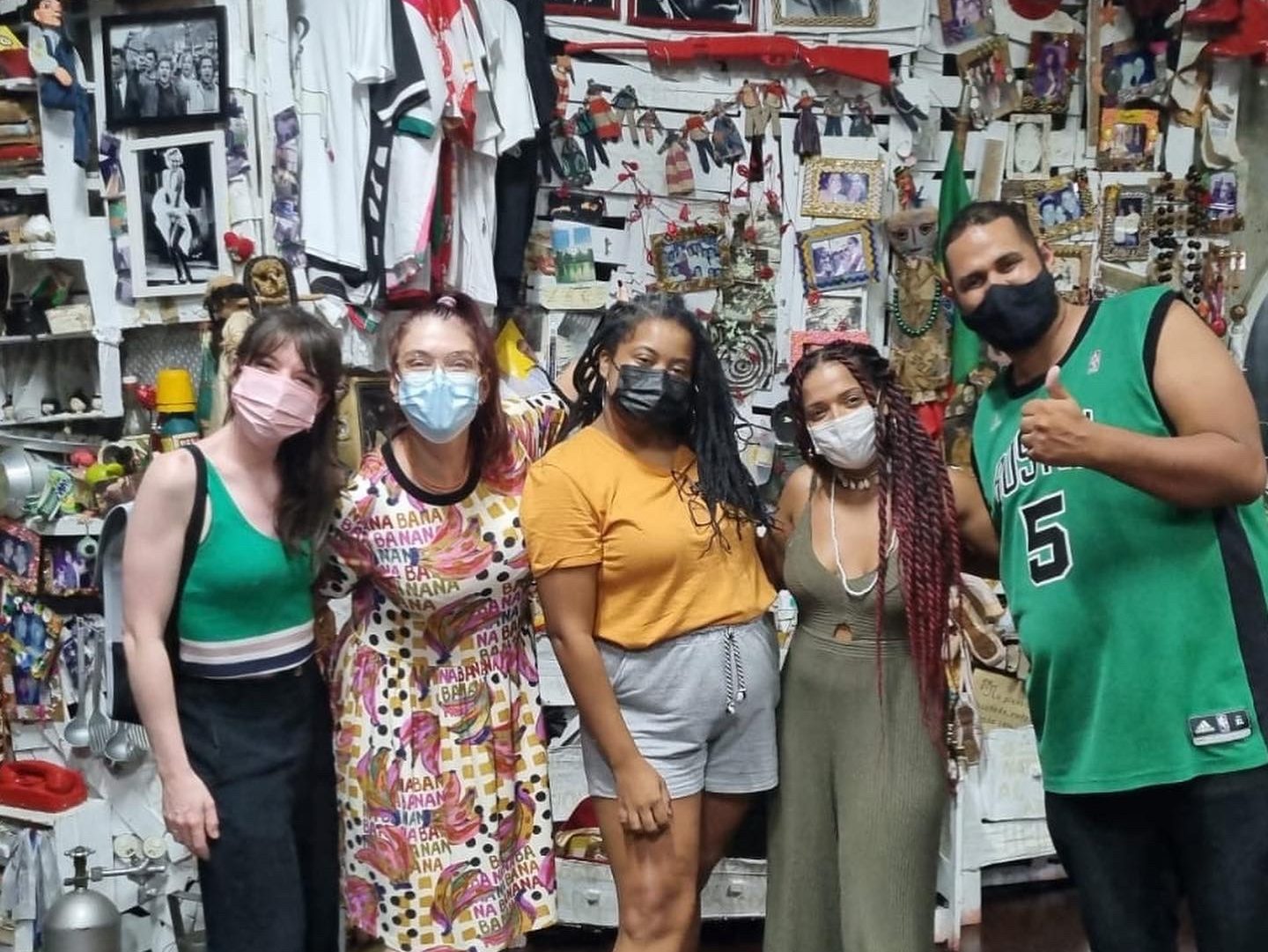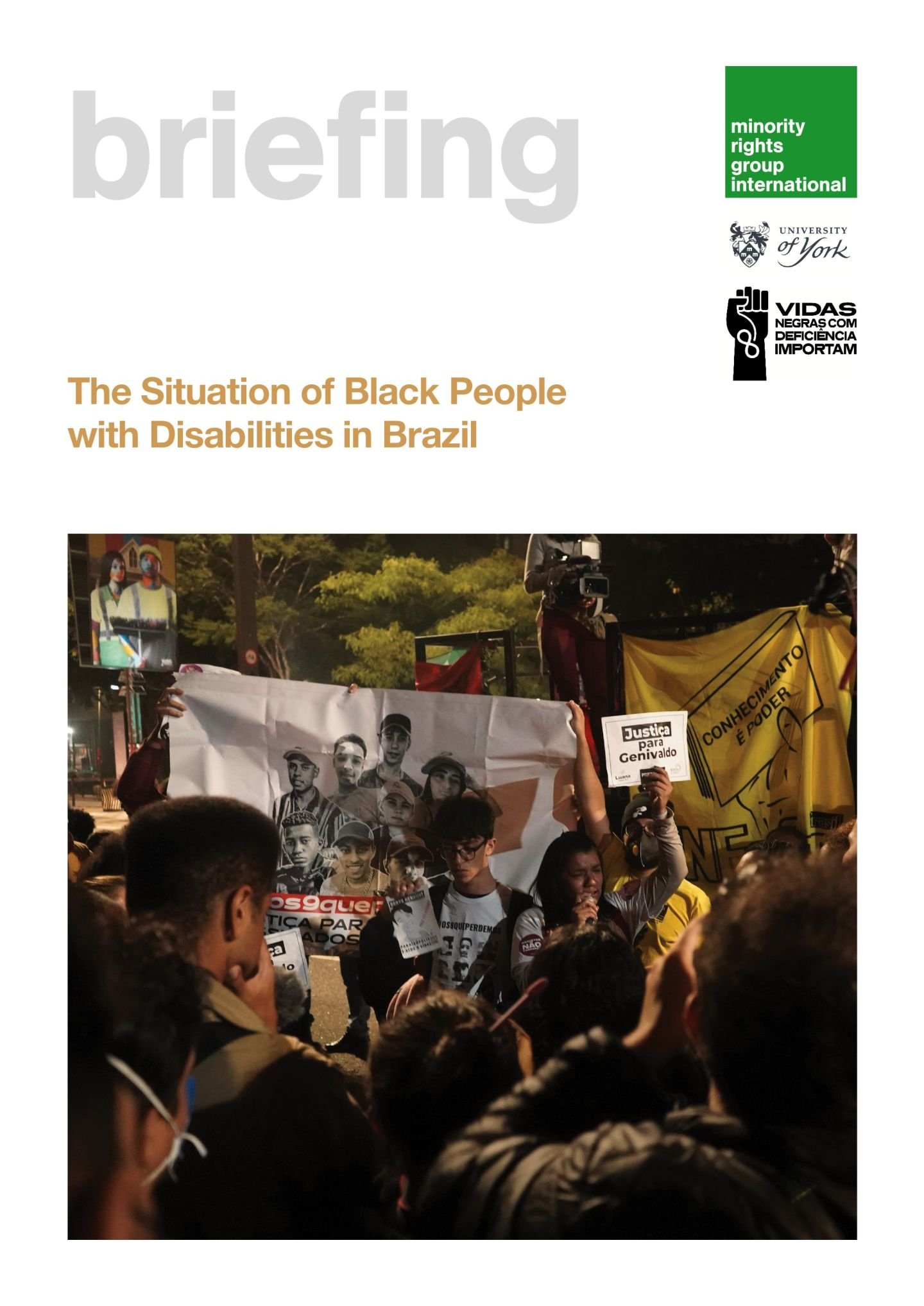
Highlighting intersectional racial, disability and gender discrimination using international human rights mechanisms
Duration: 1 August 2021 – 31 March 2023
Country: Brazil
Communities: Black persons with disabilities, including persons with disabilities from traditional communities, including quilombos
What was this programme about?
This programme aimed to realize the full protection of the rights of marginalized people with disabilities who experience intersectional discrimination in Brazil. The intersection between racism and ableism is being increasingly recognised within Brazilian society, through the co-ordinated advocacy of social justice movements striving for an anti-racist, anti-ableist and inclusive society. The programme intended to build on and collaborate with this movement to highlight systemic and intersectional racism experienced by Black and other marginalized people with disabilities and their families at both international and national levels.
Why did we deliver this programme?
Discrimination is often complex and based on two or more characteristics, for example: racism, ableism, sexism, or discrimination on account of religion, sexuality, language or culture. For many, existing mechanisms to address discrimination based on one characteristic alone are inadequate. The term ‘intersectional discrimination’ describes discrimination that happens on the grounds of more than one characteristic simultaneously.
In Brazil, intersectional discrimination is experienced by many groups of people; particularly, being black, indigenous, a woman or LGBTQI, and having a disability can negatively impact many areas of life. Health and wellbeing, education and socio-economic status are all affected. Alongside the administrative and physical barriers to economic, social and cultural rights affecting people with disabilities and from marginalised communities, intersectional discrimination is also linked to the country’s history of slavery and sociocultural conceptualizations of disability as misfortune or weakness.
Research shows that Black people in Brazil are significantly more likely to live in areas that are physically inaccessible and without adequate sanitation, lighting or drainage. They also suffer from higher rates of violence and unemployment, restricted access to education, poorer health, fewer economic opportunities, and social and political marginalisation. As a result, Black people with disabilities are some of the most vulnerable in the Brazilian society; they are overrepresented among the homeless, incarcerated and institutionalized populations.
Increasingly, intersectional discrimination is being recognised by UN treaty body committees, most notably the Convention on the Elimination of All Forms of Discrimination Against Women (CEDAW) and the Convention on the Rights of Persons with Disabilities (CRPD). While this indicates progress in the recognition of intersectional discrimination, particularly that against indigenous, Black and minority communities, there is still a long way to go in getting such issues recognized at the national and local levels, and translated into affirmative action.
What did we do?
- Created a network of social justice activists, researchers and human rights organizations to explore how working together can highlight the less visible aspects of intersectional discrimination.
- Organized knowledge exchange visits between the Brazilian and the British members of the team to gather information and facilitate advocacy.
- Collected existing data from social movements, research institutes and NGOs to highlight how intersecting Black and disability identities are linked to negative health outcomes during health emergencies.
- Drafted an alternative report on Brazil for review by the UN Committee on the Elimination of Racial Discrimination (CERD) committee focussing on the intersection between racism and ableism.
- Engaged in advocacy at the review of Brazil by the CERD committee and follow-up national advocacy after the publishing of the Committee’s concluding observations.
- Co-produced intersectional advocacy materials that can be used by other Brazilian NGOs or social movements. Material produced were made accessible to persons with disabilities through formats such as sign language interpretation, subtitling and Easy Read text.
- Disseminated the relevant recommendations to stakeholders for their implementation in Brazil after the concluding observations of the CERD committee were released.
- Explored future joint advocacy opportunities through meetings with Organizations of People with Disabilities (ODPs) and Civil Society Organizations in the UK.
What did we achieve?
Our successful advocacy campaign during Brazil’s November 2022 review at the United Nations Committee on the Elimination of Racial Discrimination (CERD) resulted in 11 recommendations being made directly related to the evidence we provided in an alternative report aimed at improving the lives of Black people with disabilities and unpaid carers. The report was researched and published by a network of social justice activists, researchers and human rights organizations purposely established to investigate the link between intersecting Black and disability identities and negative outcomes in the areas of health, education, justice and work.
A new intersectionality coordinator position was created within the National Secretariat on the Rights of People with Disabilities in Brazil’s Ministry of Human Rights and Citizenship, as a result of our advocacy efforts at the national level to ensure the implementation of the CERD’s recommendations.
We published and launched the briefing with project partners: ‘The Situation of Black People with Disabilities in Brazil’, including an illustrated Easy Read summary.
In March 2023, we supported programme partner Vidas Negras com Deficiência Importam to present our joint report to progressive political candidates, ministers, senators and federal deputies in Brasilia who defend the disability and anti-racism agenda. This secured a public audience to debate ‘Black Lives with Disabilities Matter’ at the Federal Senate on 18 September 2023.
With the support of MRG Vidas Negras com Deficiência Importam have been able to build on the work of this programme and expand their advocacy work nationally and internationally, including participating in the Second Session of the Permanent Forum on People of African Descent, which took place in New York in July 2023.
Our publications
Who were our partners?
- Vidas Negras Com Deficiência Importam (VNDI), a Brazilian movement created by Black people and people with disabilities in the search for an anti-racist and anti-ableist society.
- The University of York, a British research-intensive university working collaboratively in partnership with institutions across the world to develop life-saving discoveries and new technologies that tackle some of the most pressing global challenges.
- Fundação Oswaldo Cruz, a Brazilian institution of health science and technology which promotes health and social development and generates and disseminates scientific and technological knowledge.
- The International Movement Against All Forms of Discrimination and Racism (IMADR), an international non-profit, non-governmental human rights organization devoted to eliminating discrimination and racism, forging international solidarity among minorities experiencing discrimination and advancing the international human rights system.
Who funded this programme?
This programme was supported by an ESRC Impact Accelerator grant issued by the University of York and the Swedish International Development Agency (SIDA).
 Members of Vidas Negras com Deficiência, MRG staff and manager of Instituto Tam Tam standing in front of a wall full of pictures and artwork. Courtesy of Lauren Avery / MRG.
Members of Vidas Negras com Deficiência, MRG staff and manager of Instituto Tam Tam standing in front of a wall full of pictures and artwork. Courtesy of Lauren Avery / MRG.
